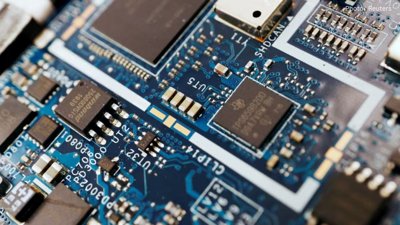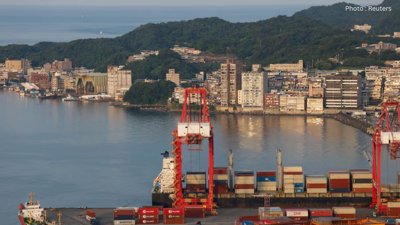
Post by : Meena Rani
In a major step for sustainable transport, NTPC Green Energy Ltd (NGEL), a subsidiary of NTPC, has signed an agreement with VO Chidambaranar Port Authority (VOCPA) in Tuticorin to set up a station. This initiative aims to gradually replace diesel trucks with hydrogen-powered vehicles, reducing pollution and promoting eco-friendly operations.
The collaboration is a part of a larger movement to make port operations cleaner, safer, and more energy-efficient. With hydrogen-based trucks, ports can reduce their dependence on fossil fuels and move towards low-carbon infrastructure.
Clean Energy Fuelling the Future of Port Operations
The new hydrogen fuelling station will specifically support hydrogen-powered trucks within the port premises. These trucks use hydrogen as fuel in internal combustion engines, which produces significantly lower emissions than conventional diesel trucks.
By switching to hydrogen, the port expects to:
Cut carbon emissions and harmful pollutants
Promote sustainable transport for logistics and shipping
Reduce dependency on fossil fuels like diesel
Create a cleaner, safer environment for workers and nearby communities
This initiative is part of NTPC Green Energy Ltd’s larger push towards green mobility and decarbonisation. It also aligns with India’s goals for energy security and sustainable industrial growth.
NTPC’s Expanding Hydrogen Initiatives Across India
NTPC Green Energy is already active in several hydrogen-based projects across the country. Some notable initiatives include:
Hydrogen blending project in Surat: Adding hydrogen to conventional fuels to reduce emissions
Mobility pilots in Leh, Greater Noida, Bhubaneswar, and Kandla Port: Testing hydrogen-powered vehicles in real-life conditions
Green hydrogen hub in Visakhapatnam: Supporting increasing demand for clean energy in industry and transport
With the new project in Tuticorin, NGEL is expanding its efforts to create sustainable transport solutions for ports and logistics centers. The company emphasizes that hydrogen technology is crucial for a low-carbon future and for building infrastructure that is resilient to climate change.
Renewable Energy and Future Plans
NTPC has set a bold goal to reach 60 GW of renewable energy capacity by 2032. This plan will include solar, wind, and other renewable energy sources, combined with advanced energy storage solutions to ensure a steady and reliable power supply.
The Tuticorin MoU is a step towards combining clean energy, renewable power, and green mobility. With hydrogen trucks, ports can operate with lower emissions, safer fuel systems, and reduced environmental impact. This model could inspire other major ports across India to adopt eco-friendly operations.
Why Hydrogen is the Fuel of the Future
Hydrogen has emerged as a promising alternative to diesel because it:
Produces no carbon dioxide when used in fuel cells
Can be produced from renewable sources, including solar and wind
It is versatile for transport, industrial, and shipping applications
Helps countries like India reduce pollution and greenhouse gas emissions
Hydrogen-powered trucks are particularly suitable for ports because they operate within controlled areas and have predictable refuelling needs. By using green hydrogen, Tuticorin Port aims to lead India in sustainable port operations.
Long-Term Benefits for Ports and Logistics
The hydrogen initiative will not only help the environment but also strengthen India’s energy security. Ports are critical hubs for trade, and reducing reliance on diesel makes them more resilient to fluctuations in fuel prices.
Other benefits include:
Cleaner air quality around the port
Healthier working conditions for employees
Supporting low-carbon supply chains for shipping and logistics
Preparing infrastructure for future renewable energy integration
Experts say that hydrogen can become a mainstream fuel for industries and logistics, gradually replacing fossil fuels in sectors where electrification alone may not be sufficient.
The collaboration between NTPC Green Energy Ltd and Tuticorin Port marks a significant milestone for India’s journey towards sustainable energy. By introducing hydrogen trucks and setting up a fuelling station, the port is taking a practical step towards reducing carbon emissions, cutting fuel dependence, and creating a cleaner and greener environment.
This project is a glimpse into the future of eco-friendly port operations, demonstrating how innovative energy solutions can transform logistics, shipping, and industrial transport. With continued support for renewable energy and green mobility, India can build climate-resilient infrastructure that benefits both the economy and the environment.
green hydrogen, clean fuel, port operations, NTPC Green Energy










Advances in Aerospace Technology and Commercial Aviation Recovery
Insights into breakthrough aerospace technologies and commercial aviation’s recovery amid 2025 chall

Defense Modernization and Strategic Spending Trends
Explore key trends in global defense modernization and strategic military spending shaping 2025 secu

Tens of Thousands Protest in Serbia on Anniversary of Deadly Roof Collapse
Tens of thousands in Novi Sad mark a year since a deadly station roof collapse that killed 16, prote

Canada PM Carney Apologizes to Trump Over Controversial Reagan Anti-Tariff Ad
Canadian PM Mark Carney apologized to President Trump over an Ontario anti-tariff ad quoting Reagan,

The ad that stirred a hornets nest, and made Canadian PM Carney say sorry to Trump
Canadian PM Mark Carney apologizes to US President Trump after a tariff-related ad causes diplomatic

Bengaluru-Mumbai Superfast Train Approved After 30-Year Wait
Railways approves new superfast train connecting Bengaluru and Mumbai, ending a 30-year demand, easi